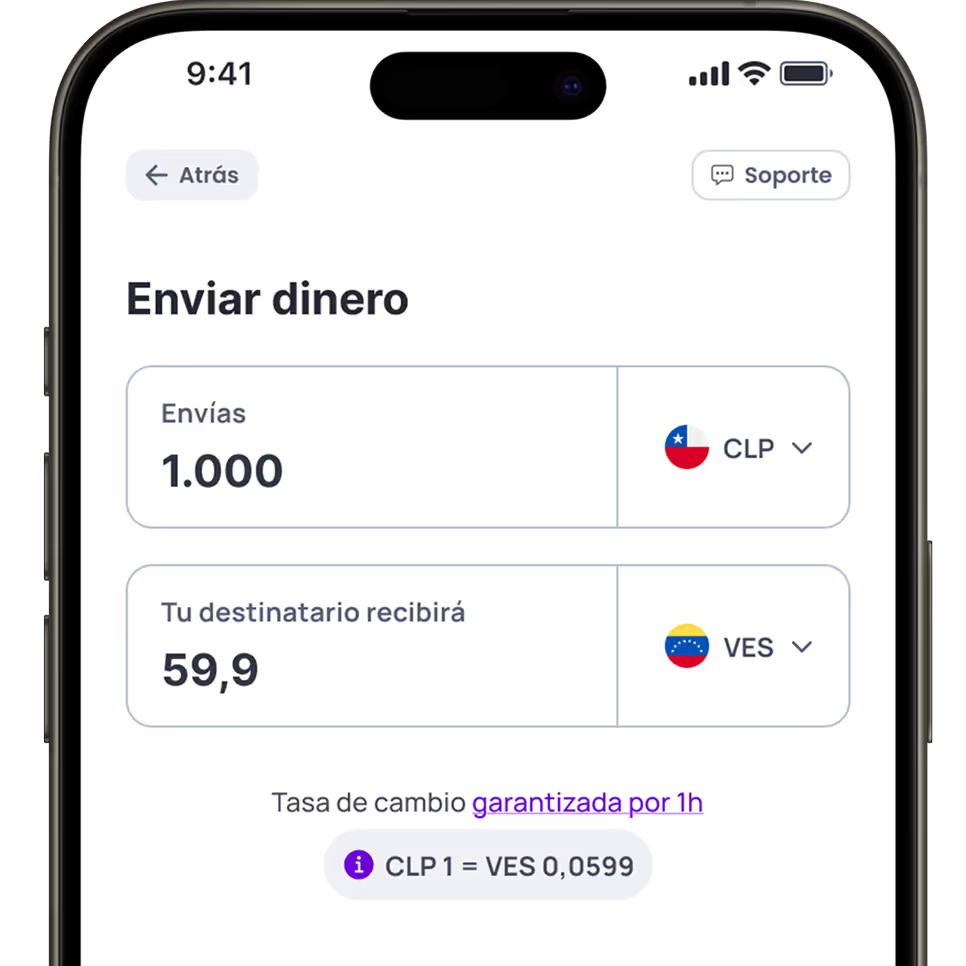Remittances are transfers of money that people make from one country to another, generally to financially support family or friends. These transfers usually come from migrants who work abroad and send part of their income to their loved ones in their home country.
Nowadays they represent an economic pillar for many Venezuelan families because their main objective is to cover basic expenses such as food, medicine, housing or education; and their impact on the country's economy is increasingly evident. In a context of prolonged economic crisis, hyperinflation and insufficient wages, money transfers from abroad have become a vital source of income.
The economic context that drives remittances
Venezuela has been going through one of the most profound economic crises in its recent history for years. Factors such as the devaluation of the bolivar, the fall in oil revenues and international sanctions have significantly diminished the purchasing power of citizens.
Faced with this situation, millions of Venezuelans have decided to migrate in search of job opportunities in countries such as Colombia, the United States, Spain and Chile, sending part of their income to their loved ones in Venezuela.
According to estimates from international organizations, remittances have reached figures close to 4.5 billion dollars annually, representing one of the main sources of foreign exchange in the country. This constant flow of resources allows families to cover basic needs that would often be inaccessible with local income.
How remittances impact the Venezuelan economy
The effect of remittances on the Venezuelan economy is manifested at several levels:
- Domestic consumption: A significant proportion of remittances go to daily consumption, helping to sustain small local businesses and boosting the domestic economy.
- Family stabilization: For many families, remittances represent up to 80% of their monthly income, allowing them to cope with the crisis.
- Influence on dollarization: The receipt of remittances in dollars has accelerated the informal dollarization process in Venezuela, making this currency predominant in many economic transactions.
- Reducing extreme poverty: Although they do not eliminate widespread poverty, remittances have been key to mitigating the impact of the crisis, especially in vulnerable rural and urban areas.
The role of Retorna in sending Remittances
Retorna makes it easy to send money from countries such as Chile, Colombia, Argentina and Peru and our most recent opening in Europe; offering users a fast, safe and affordable experience. Solutions such as our platform are essential so that more migrants can send resources to their families efficiently, without worrying about high fees or unnecessary delays.
In addition, Retorna not only contributes to the flow of remittances, but also to building trust between Venezuelans abroad and their families. We offer transparent, easy-to-use tools and personalized customer service, meaning you'll be served by real people and not bots; available 24/7.
On the other hand, we have fair rates and sometimes discount coupons, which allow you to pay less and send more support.
To learn about them and keep up to date with our discounts, we invite you to follow us on our social networks and keep an eye out for updates.
https://www.instagram.com/retorna.app/
https://www.tiktok.com/@app.retorna
https://cl.linkedin.com/company/retorna
https://www.youtube.com/@retorna
All of this allows more people to access financial services critical to their well-being and that of their families in their home country.
Discover how to send money with Retorna in an easy and secure way to help you connect with your loved ones in Venezuela.


Tu dinero llegará en un parpadeo
Con Retorna, tus envíos llegan en minutos.
Tan fácil como enviar un mensaje por WhatsApp. Haz tu envío en pocos clics y tu dinero llegará rápido, seguro y sin complicaciones.






.jpeg)






